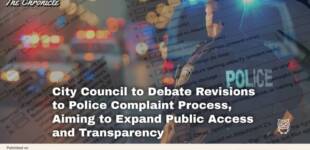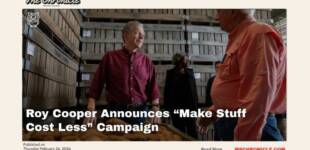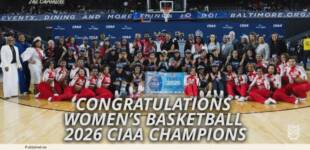City Council approves controversial cell tower
The Winston-Salem City Council approved a controversial cell tower, a report on a potential bond referendum and an ordinance allowing for trolley pubs in its Monday, Dec. 18, meeting.
The meeting was again dominated by a controversial special use zoning for a 150-foot cell tower on the property of Twin City Bible Church. The “slick stick” pole would have no visible attachments. The petitioner was represented by lawyers and realtors who presented analysis of home values in the area and in another neighborhood with a cell tower that showed it would have no significant impact on property values. The Ardmore Neighborhood Association, which represents approximately 5,000 homes in the area, disagreed. Ardmore Association President Daniel Castro argued against the methodology and conclusions of the realtors.
By state law, cellphone towers receive quasi-judicial hearings, where the council hears sworn testimony and can only base their vote on findings of fact. They can only consider “expert” testimony on property values.
City Council Member Dan Besse, whose Southwest Ward the tower will reside in, said that the law obligated him to side with the petitioner’s evidence over his constituents. He said that if the tower was denied it would be easily overturned in court.
“I don’t think that would be consistent with my personal integrity to know a motion that I made will not stand up in a court of law,” said Besse.
City Council Member James Taylor, who is also The Chronicle’s publisher, refused to vote and walked out, saying that he felt the state law was “ridiculous.” Council Member Derwin Montgomery, who is also one of the Chronicle’s owners, voted “no,” saying that he found flaws in the petitioner’s analysis and believed the law gave him the ability to determine who was an “expert.” Council Member John Larson voted “no,” questioning if the tower would be in “harmony” with the area, which is one of the criteria it needed to meet. The measure passed 5-2.
Castro said he was disappointed by the outcome and that his neighborhood association couldn’t afford to hire a realtor like the petitioner did.
“I was very disappointed they didn’t give us more credit,” said Castro. “What we tried to do was lay out very clearly all the problems in their assessment.”
The City Council also unanimously voted to accept a Citizen’s Capital Need Committee report on a possible 2018 bond referendum. The committee recommended a $120.3 million bond package that would result in a 4-cent tax increase. The vote was only to accept the report. The next step will be a workshop held on Monday, Jan. 29, at 5:30 p.m. at City Hall, in which the council will examine the recommendations. If the council decides to move forward with a bond, it could be placed on the November ballot for voter approval. The last referendum was in 2014 when voters approved $139.2 million in general obligation bonds.
In the consent agenda, the council approved an ordinance that will allow for Trolley Pubs in the downtown Central Business District with annual certification by the City. Trolley Pubs are open-air vehicles with room for storing alcohol that seat 8-14 passengers on saddle-type seats with bicycle pedals. The city ordinance only allows partially motorized trolly pubs and not those that solely depend on pedaling. State law allows for drinking by passengers in vehicles for hire.
The ordinance was requested by Kai Kaapro, whose Trolley Pub company is active in Raleigh, Durham and Charlotte. The trolley pubs ride on tours with a minimum of six peddlers and a certified conductor with all alcohol being brought on by the passengers. The company has expressed interest in operating in the “hospitality areas” along Trade and Fourth streets.









